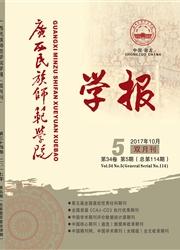

 中文摘要:
中文摘要:
群体性突发事件的发生会对社会系统的正常运行会造成负面影响,产生负能量。从逻辑的角度看,人们的行动是基于偏好的,偏好是行动主体认知世界中基于认知状态的一种倾向。根据基于偏好而形成的内在发生机制,对这类事件进行恰当干预,从而使行动主体的选择偏好发生变化,进而最终能够消除在逻辑上也是必然的。在逻辑发生机制下,以日本大地震后我国出现的抢盐风潮为典型案例,通过全面分析,该案例揭示出,群体性突发事件发生与否的一个关键因素是公众能否获取正确信息,正是这些信息形成的偏好决定了公众如何选择的。
 英文摘要:
英文摘要:
As a sort of unexpected events, group emergencies inevitably affect the regular operation of social system and bring about many negative impacts. From the view of logic, as the result of cognitive states in agent's epistemological world, preference determines agent's choice and action. It is necessary that group emergencies will occur, and that incidents can, according to this kind of mechanism, be eliminated ultimately after being intervening properly. Under the frame of logic, it is demonstrated from China's great salt rush that right and reliable information is a decisive factor whether group emergencies take place or not.
 同期刊论文项目
同期刊论文项目
 同项目期刊论文
同项目期刊论文
 期刊信息
期刊信息
